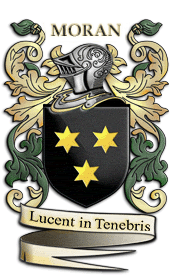Originally posted by mercia
View Post
Alphabet associations - I
Collapse
This topic is closed.
X
This is a sticky topic.
X
X
-
I wish I could - I don't really understand itOriginally posted by vinteuil View Postplease specify?
each "lesson" consisting of soloist and response, the soloist singing a melisma of the first letter of the Hebrew verse ............. or something
I really have no idea what I'm talking about and wikipedia isn't helping
and wikipedia isn't helping
I'm sure my esteemed colleagues will be able to work it out
Comment
-
-
The first verse, which starts after the intoning of "Aleph" (the first letter of the Hebrew alphabet), begins with "Quomodo". See, e.g. the score of Couperin's setting at: http://www3.cpdl.org/wiki/images/9/9...e_Tenebres.pdfOriginally posted by mercia View PostI wish I could - I don't really understand it
each "lesson" consisting of soloist and response, the soloist singing a melisma of the first letter of the Hebrew verse ............. or something
I really have no idea what I'm talking about and wikipedia isn't helping
and wikipedia isn't helping
I'm sure my esteemed colleagues will be able to work it out
Comment
-
-
Yes: the verses of The Lamentations of Jeremiah which are used for the Tenebrae services are preceded by the letters of the Hebrew alphabet (aleph, beth, gimel, daleth etc). And the opening verse begins: "Quomodo sedet sola civitas plena populo?" ["How doth the city sit solitary, that was full of people!"]
Mercia correctly located this as part of Tenebrae; subcontra provided the detailed answer. Which of you wishes to Respond?Last edited by vinteuil; 12-02-12, 18:44.
Comment
-
-
As well as being a pice of music, Ricercare is Resarch in Italian
Francesco Spinacino (fl. 1507) was an Italian lutenist and composer who wrote 27 ricercares.
The other two by their professions were involved in research.
Galileo was an Italian scientist whose work in the 17th century helped unlock many secrets of astronomy and natural motion.
Jean-Jacques Rousseau (28 June 1712 – 2 July 1778) was a Genevan
philosopher, writer, and composer of 18th-century Romanticism of French
expression. He wrote Ricercares also?
Comment
-
-
Wrong Galilei - the one in question was the father of Galileo. He and Rousseau wrote different academic descriptions of "Ricercare". Galilei described it as essentially a fantasia. Rousseau described it as essentially a fugue. Some composers, such as Frescobaldi, used both forms.Originally posted by cloughie View PostAs well as being a pice of music, Ricercare is Resarch in Italian
Francesco Spinacino (fl. 1507) was an Italian lutenist and composer who wrote 27 ricercares.
The other two by their professions were involved in research.
Galileo was an Italian scientist whose work in the 17th century helped unlock many secrets of astronomy and natural motion.
Jean-Jacques Rousseau (28 June 1712 – 2 July 1778) was a Genevan
philosopher, writer, and composer of 18th-century Romanticism of French
expression. He wrote Ricercares also?
Comment
-




Comment